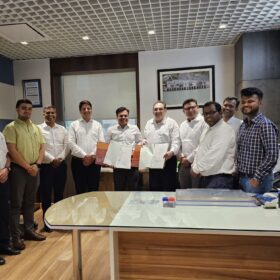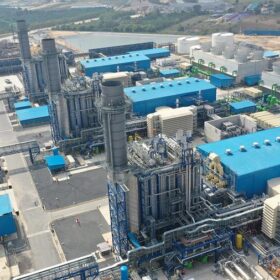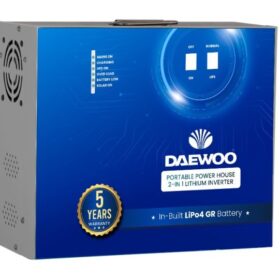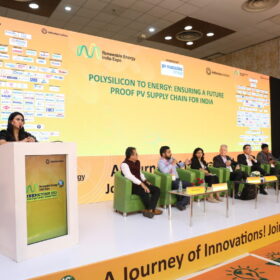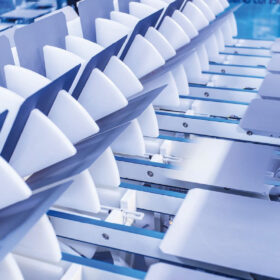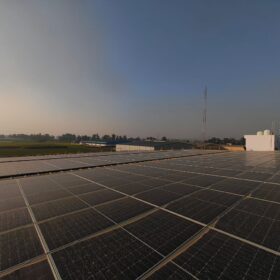Global solar and wind generation will soon pass nuclear, hydro
In a new monthly column for pv magazine, the International Solar Energy Society (ISES) explains how solar and wind are dominating power plant construction.
Hero Future Energies secures PPA for 150 MW renewables-plus-storage project
Hero Future Energies has secured a power purchase agreement (PPA) with SJVN Ltd for a 150 MW firm and dispatchable renewable power project to be developed in Karnataka.
IEA-PVPS launches action group on agrivoltaics
IEA-PVPS is poised to launch a new format for expert engagement. It will include an action group on agrovoltaics, as well as a collaborative effort to match agriculture and solar generation. It aims to unlock the potential of agrivoltaics, optimize land use efficiency, enhance agricultural resilience to climate change, and foster social consensus for solar development.
The Hydrogen Stream: Hygenco, Mitsubishi partner to deliver green hydrogen-fired GTCC power plants
Hygenco Green Energies has signed a memorandum of understanding (MoU) with Mitsubishi Heavy Industries and Mitsubishi Power to deliver green hydrogen-/ammonia-fired gas turbine combined cycle (GTCC) power plants.
Gensol Engineering appoints Shilpa Urhekar as CEO for India solar EPC
Prior to joining Gensol, Shilpa Urhekar served as the country head (India) at Sterling and Wilson Renewable Energy Ltd.
Daewoo launches hybrid battery-inverters for residential PV
Daewoo’s new hybrid inverters feature LiFePO4 batteries. They are available in six variants, with power ratings ranging from 0.5 kVA to 10 kVA.
The U.S. multi-pronged approach to onshoring solar manufacturing
The U.S. aims for a domestic solar supply chain, but the industry’s capacity to serve the early stages in solar manufacturing are minimal. Will its recent industrial policy efforts make a difference?
Novel hydrophobic, antireflective coating for solar glass
Slovakian scientists have developed a novel hydrophobic, antireflective coating for solar glass with a silica-titania thin film as the bottom layer and an inorganic-organic upper layer made of silica modified with triethoxy(octyl)silane. This new coating increases glass transmittance by 7% compared to uncoated glass.
Competition, oversupply to reduce n-type solar module prices
Global solar demand will continue to grow in 2024, with module demand likely to reach 492 GW to 538 GW. Amy Fang, a senior analyst at InfoLink, looks at module demand and supply chain inventories in a market still affected by oversupply.
NTPC tenders 225 MW solar, NHPC 200 MW in Gujarat
NTPC Renewable Energy Ltd has invited bids to install and commission 225 MW of grid-connected solar PV projects in Khavda, Gujarat. NHPC has tendered the EPC contract for a 200 MW grid-connected PV power project in Khavda.

